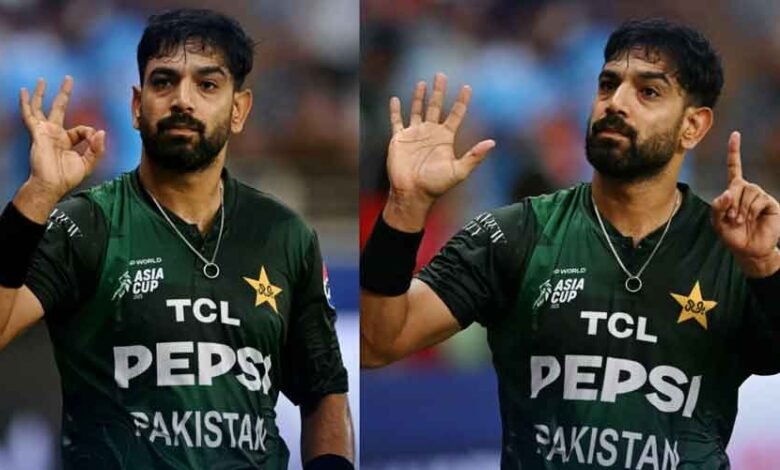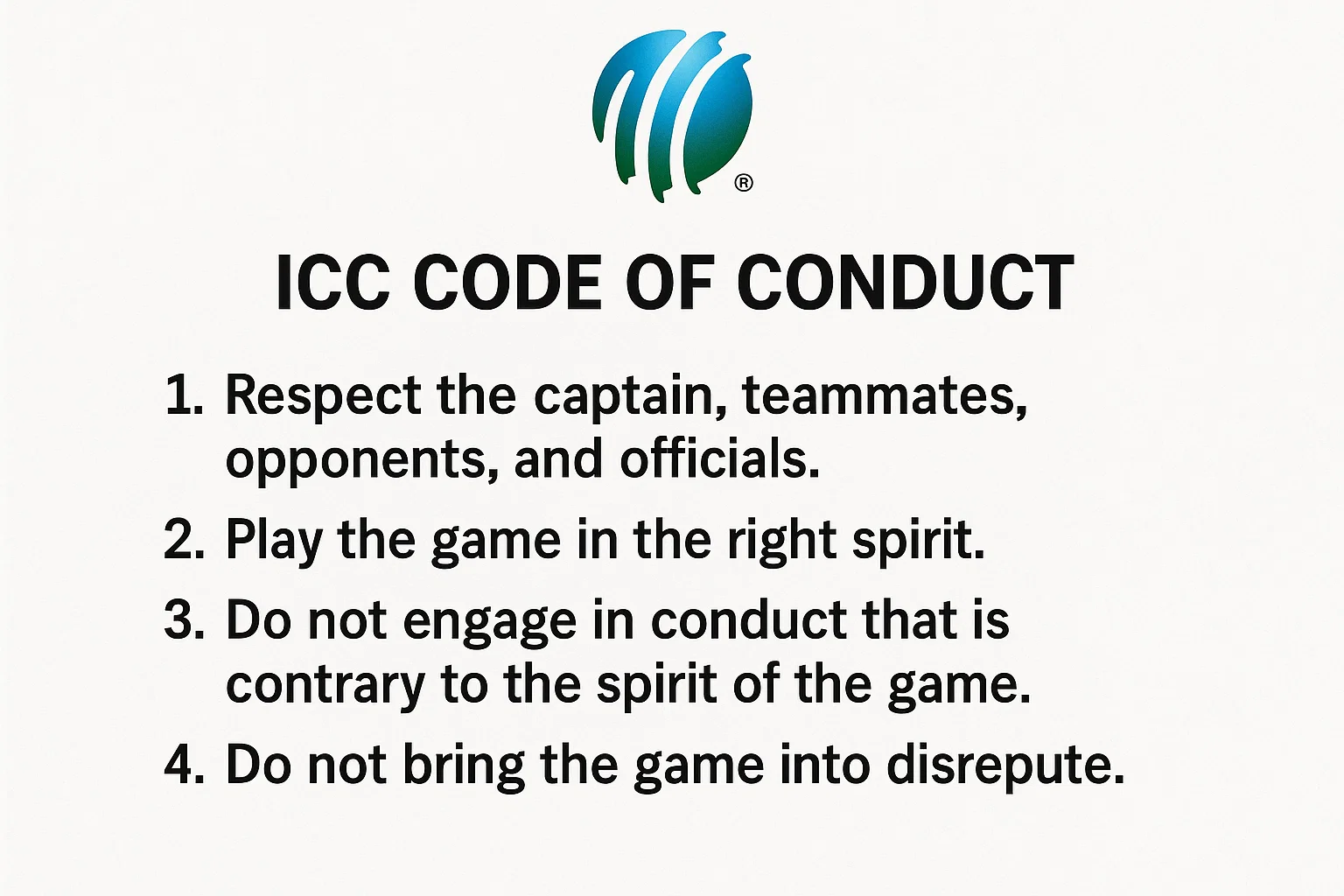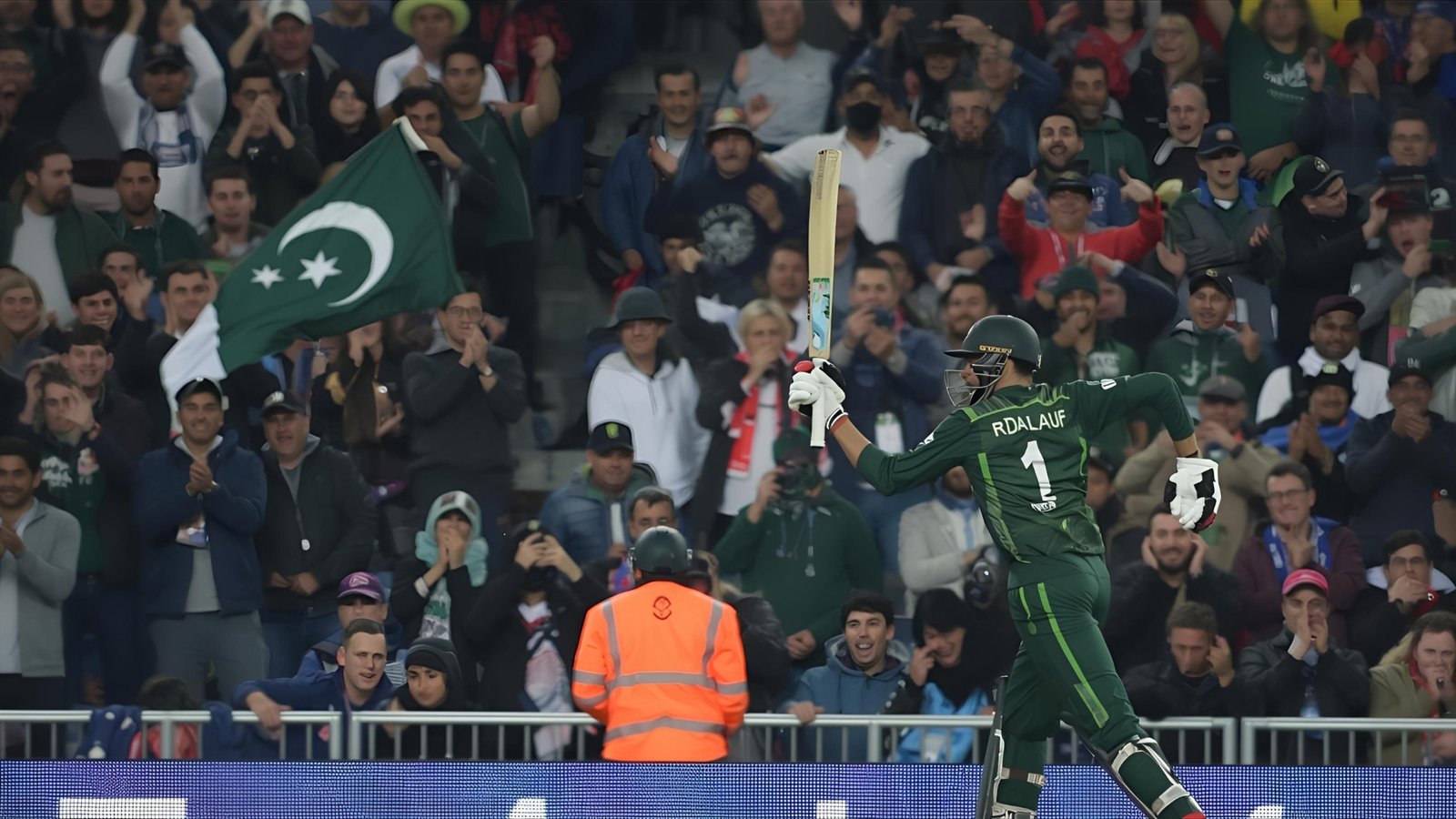
Cricket’s fiercest rivalry delivered fireworks on and off the field in the Asia Cup 2025 Super Four stage. In the aftermath of Pakistan’s high-octane clash with India, fast bowler Haris Rauf was fined 30% of his match fee for breaching the ICC Code of Conduct, following reports reviewed by the match referee panel. The sanction—recommended after hearings overseen by former West Indies captain Richie Richardson—centred on conduct deemed inappropriate during the India vs Pakistan encounter. At the same time, teammate Sahibzada Farhan received a warning for provocative gestures. Indian captain Suryakumar Yadav was also fined 30% in a separate decision connected to the broader disciplinary sweep of the fixture.
What, precisely, did Rauf do? According to multiple reports, officials viewed his gestures and on-field demeanour as rude and aggressive, triggering a Level 1 offence under the ICC’s playing control regime—penalties that commonly include a percentage deduction of the match fee and possible demerit points. While the ICC’s formal media note was still being filtered through press channels at the time of writing, leading publications in India and Pakistan reported the exact 30% figure and the referee’s recommendation, with both the PCB and BCCI retaining the right of appeal.
A flashpoint in a charged India–Pakistan contest
The Pakistan-India rivalry is rarely short of drama, and this latest chapter provided plenty. The match itself was punctuated by intense celebrations, sharp exchanges, and crowd energy that can easily tip the atmosphere from carnival to combustible. Reports indicate that the trigger for disciplinary scrutiny included repeated hand gestures and celebratory actions deemed to breach the spirit of the standards codified in Article 2 of the ICC Code of Conduct (Level 1). Even when incidents do not disrupt play, they can still cross the line when they provoke opponents or spectators or risk inciting the crowd.
This wasn’t a one-sided disciplinary day. Alongside Rauf’s sanction, Sahibzada Farhan’s animated celebration—deemed provocative by the opposing camp—drew a warning. At the same time, India’s Suryakumar Yadav was fined 30% of his fee in a separate ruling related to post-match conduct. The decisions were made after formal complaints were exchanged between the boards and reviewed by the Emirates ICC Elite Panel of Match Referees, a process typical in the game’s governance architecture for Level 1 offences.
What the ICC Code of Conduct says

Understanding Level 1 offences
The ICC Code of Conduct classifies misconduct into Levels 1 to 4, with Level 1 covering low-end breaches such as showing dissent, excessive appealing, using inappropriate language, or provocative gestures that are considered unsportsmanlike but not egregious. Sanctions typically range from reprimands to a fine of up to 50% of the match fee, and may include one demerit point.
While each case turns on its own facts, referees rely on precedent to ensure penalties remain proportionate. Recent ICC media releases—unrelated to this match—show how match referees, such as Richie Richardson, commonly propose and finalise sanctions when players accept charges, thereby avoiding the need for full hearings.
Why 30% of the match fee?
A 30% match-fee deduction aligns with the lower-to-mid range for Level 1 penalties, signalling that officials viewed Rauf’s actions as significant enough to merit a financial sanction but not so severe as to require suspension or a heavier fine. The figure also resonates with recent decisions in international cricket, where on-field celebrations at proximity or provocative gestures have drawn fines ranging from 15% to 50% of the match fee.
The timeline: complaints, hearings, and a verdict
From complaints to conclusion
The crescendo began when the BCCI complained to the ICC concerning the gestures of Haris Rauf and Sahibzada Farhan during the Super Four match. In a swift response, the PCB filed its own protest regarding comments made by Suryakumar Yadav. These cross-complaints moved the matter into the Code of Conduct pipeline, culminating in match-fee fines for Rauf and Suryakumar and a warning for Farhan. The Times of India and Economic Times both reported the 30% figure for Rauf along with the referee’s role, noting the scope for appeals by either board.
Who makes the call?
Under ICC protocol, on-field umpires may initiate the process by reporting behaviour. The match referee—here, Richie Richardson—assesses submissions, hears from the parties, and either proposes a sanction or sets a hearing if the player contests the decision. Many cases end administratively when a player admits the offence and accepts the sanction, a pattern reflected in recent ICC notes on other matches.
What this means for Haris Rauf and Pakistan

Financial and reputational impact
A 30% cut to the match fee is a tangible penalty, but the deeper cost comes in reputation and disciplinary record. While no suspension accompanies a Level 1 first-offence fine, demerit points (if any are assigned) accumulate over a 24-month window. Reach the threshold, and future sanctions can escalate quickly. That’s why teams emphasise composure, especially in matches as combustible as India vs Pakistan.
Team management’s balancing act
Coaches routinely back their players’ passion while preaching controlled aggression. Pakistan’s management now has to channel Rauf’s intensity into match-winning spells without straying into code breaches. Given how pressure, crowd energy, and rivalry narratives amplify emotions in multinational tournaments, expect stronger messaging around post-dismissal celebrations, proximity to batters, and any gestures that could be construed as provocative.
Why officials are clamping down
Safeguarding the spirit of the game
The ICC’s stance aims to preserve sportsmanship, prevent crowd provocation, and mitigate flashpoints that can escalate. Whether it is an exuberant celebration too close to a dismissed batter or gestures aimed at the boundary, the line is thin. Recent cases across formats have seen players fined for over-zealous send-offs, verbal spats, and inappropriate celebrations—all reminders that spectacle must stop short of incitement.
Consistency and precedent
Match referees look for consistency. As the Reuters archive shows in other contexts, percentage fines and demerit points are standard levers for maintaining order, even when incidents are relatively minor. These decisions, taken together, form a precedential backbone that informs future calls—helping players calibrate behaviour and giving boards clarity on likely outcomes.
The Farhan and Suryakumar angles
Farhan’s warning
While Farhan escaped a financial penalty, a formal reprimand or warning still puts a marker on a player’s record. Warnings often accompany first-time or borderline situations where referees want to convey a message without imposing a fine. Media reports in India noted Farhan’s celebration as the flashpoint, reinforcing why such actions are closely scrutinised when the opponent is India and the stakes are high.
Suryakumar’s separate sanction
In a parallel thread, Suryakumar Yadav received his own 30% deduction in connection with conduct tied to the same fixture window, underscoring that the ICC’s lens was trained on both camps, not just Pakistan. This context is essential for maintaining competitive balance and for perceptions of neutrality in enforcement.
Could there be an appeal?
The pathway and prospects
Both PCB and BCCI retain the right to appeal under the Code. Appeals typically weigh new evidence, procedural fairness, and proportionality of the sanction. Given the Level 1 designation and the widespread reporting of a 30% penalty—a figure well within norms—the chances of dramatically altering the outcome are usually modest unless there is an apparent mistake of fact or process. Still, where rivalry politics are intense, boards sometimes pursue appeals to signal backing for their players.
Big-picture takeaways for players and fans
Passion with boundaries
The Asia Cup thrives on emotion, but the ICC Code of Conduct exists to keep emotion from turning into provocation. For Haris Rauf fined, the fine is a reminder that pace and presence must be matched by poise. For fans, it’s a cue that some celebrations—however cathartic—can invite penalties when they stray into the opponent’s space or taunt the crowd.
What to watch next
Keep an eye on any formal ICC media release that locks in the details and confirms whether demerit points were added. Also, watch how both teams adjust touchline behaviour in upcoming fixtures; after publicised sanctions like these, referees often tighten the temperature to prevent repeat incidents.
Conclusion
Haris Rauf’s 30% match-fee fine is the latest reminder that in modern cricket, controlled aggression is prized, but provocation is penalised. The ICC has signalled its intolerance for gestures and actions that inflame tempers—especially in marquee clashes like Pakistan vs India. With Farhan warned and Suryakumar separately fined, the disciplinary ledger reflects a broader effort to standardise enforcement and preserve the spirit of cricket. As the tournament progresses, the most astute teams will focus on passion, rather than provocation.
FAQs
Q: What exactly did Haris Rauf do to get fined?
Reports indicate the referee panel judged Rauf’s gestures and demeanour during the India clash to be rude and aggressive, constituting a Level 1 breach under the ICC Code of Conduct. The outcome was a 30% match-fee deduction.
Q: Is 30% a typical fine for this kind of offence?
Yes. Level 1 sanctions typically range from a reprimand to a fine of up to 50% of the match fee, along with possible demerit points. 30% sits within the standard band referees use for unsportsmanlike conduct.
Q: Did Sahibzada Farhan and Suryakumar Yadav face action too?
Farhan received a warning over a provocative celebration, while Suryakumar Yadav was fined 30% in a separate ruling connected to the same match window.
Q: Can Pakistan or India appeal these decisions?
Yes. Both boards have appeal rights, and early reporting noted that PCB and BCCI could challenge the sanctions if they choose to do so.
Q: Will Rauf miss any matches?
Not for a first-time Level 1 breach with a fine only. Suspensions occur if demerit points accumulate to a threshold or if a higher-level offence is proven. A formal ICC note typically confirms any demerit points that have been awarded.
Also Read: LIVE: IND vs PAK — Asia Cup 2025 Super Four Thriller






